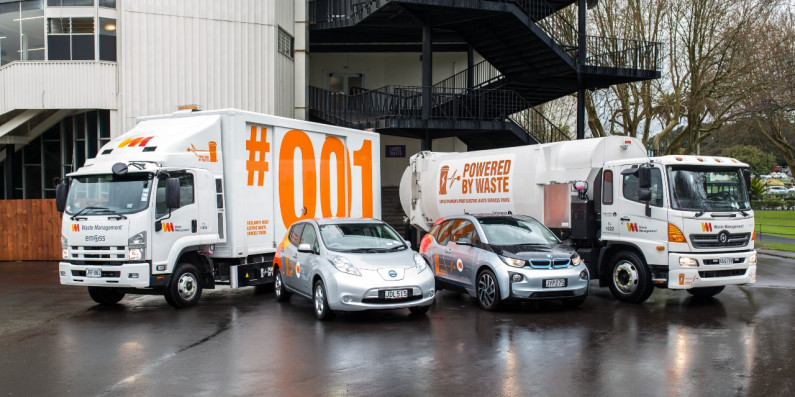In 2016, WMNZ committed to reducing emissions from its fleet. They started to transition some of their diesel fleet and invest in cars to help limit climate change and contribute to New Zealand’s circular economy.
Today WMNZ operates one of the largest EV truck fleets in Australasia. It also has 93 electric cars in its light fleet.
WMNZ’s collection trucks each travel an average of 200km per day. Their work is stop-start – the driver stops to empty each bin — which is perfect for electric. At each stop, the deceleration creates energy that recharges the truck’s on-board batteries. To date, one of those electric trucks has driven about 80,000km on duty in Auckland. It runs 11 hours and collects 1200 bins in a day.
WMNZ also captures the gas produced from waste at its landfills. This is converted into electricity and supplies the national grid.
In an agreement with EECA, WMNZ developed an electric truck conversion workshop in Auckland. Opened in 2018, the workshop works on WMNZ’s fleet and the company helps other companies in Aotearoa with their EV transition too.
If fully diesel, WMNZ’s truck fleet would need 10 million litres of diesel a year. Each electric truck that replaces a diesel-powered vehicle, saves 125 litres of diesel a day. Converting the entire WMNZ fleet would save 100,000 litres of diesel a day.
Staff have been upskilled to drive, maintain, and complete truck conversions in Aotearoa, and manage the fleet’s EVs, keeping the company at the forefront of EV technology globally. WMNZ’s EV programme now includes 27 fully electric trucks, including trucks in Hutt Valley and Dunedin.
